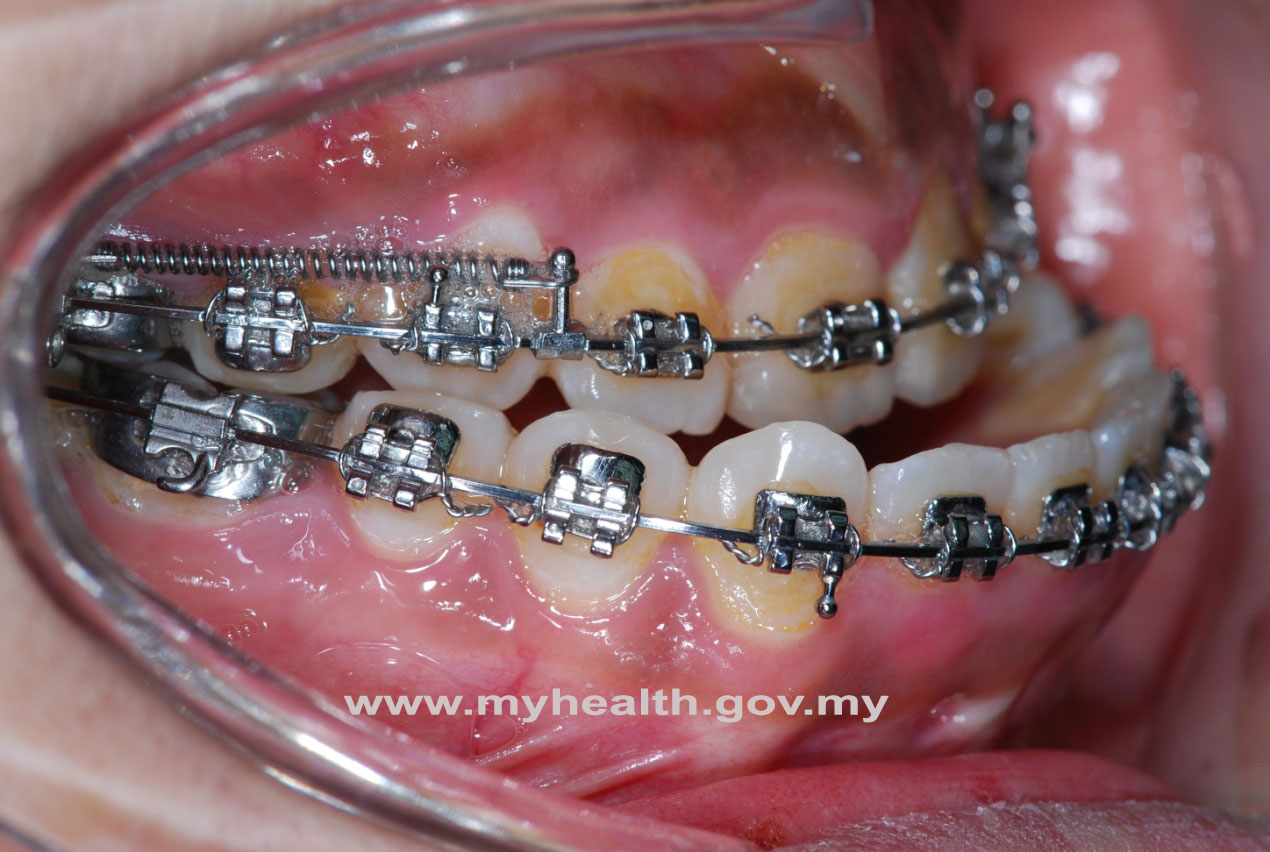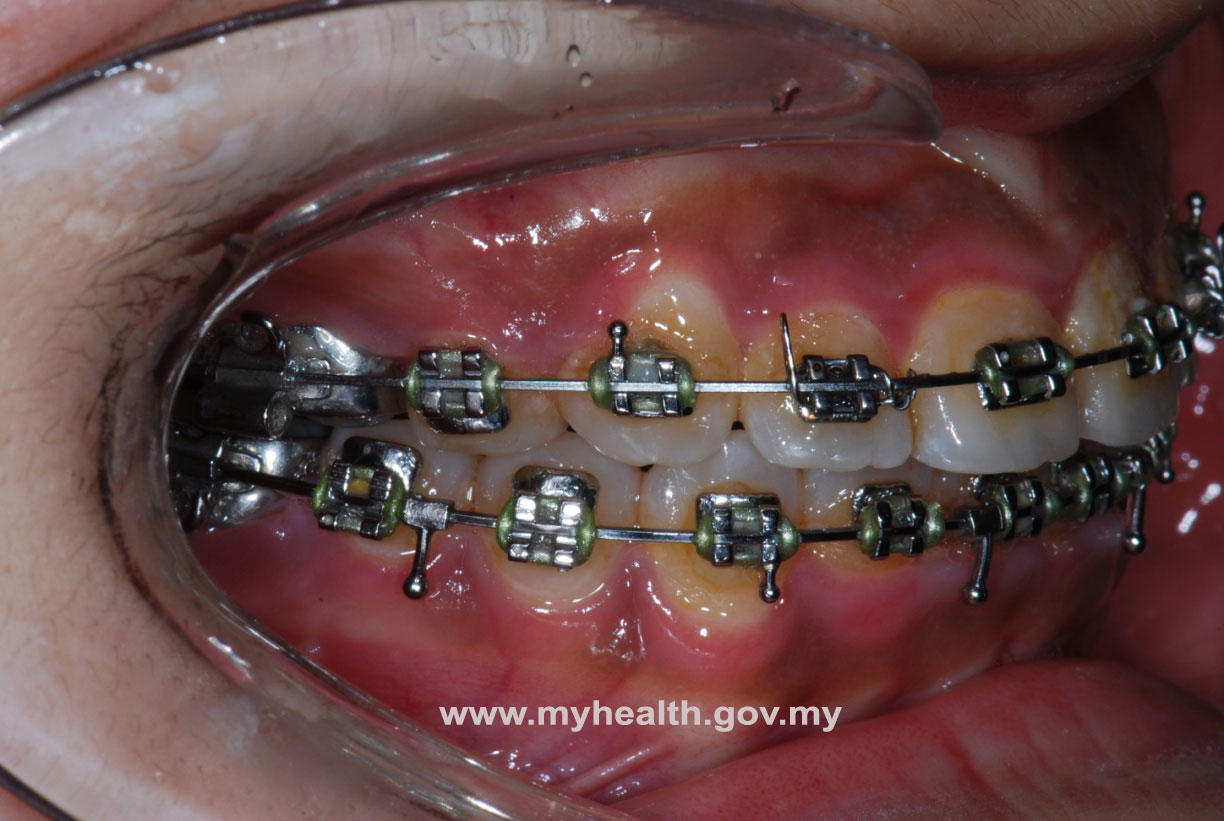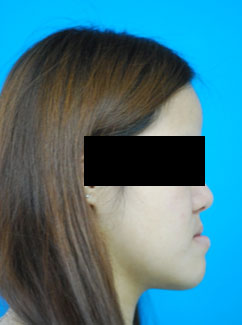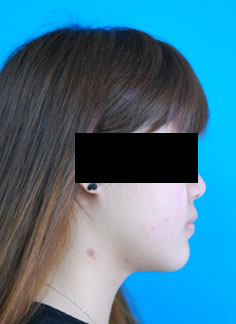Orthognathic Surgery
What is orthognatic surgery?
Orthognathic surgery is an operation to move the jaws into a proper position so that the teeth will meet correctly.
Who needs orthognathic surgery?
A small proportion of individuals may have severe jaw imbalance in terms of size and position (Fig.1). These individuals can be affected in many ways:
- Dental and facial appearance which may cause psychological stress and affect quality of life
- Unable to bite and difficulty eating certain foods
- Damage to the gums and palate
- Jaw muscle and jaw joint problems
- Speech problems
In order to improve the position of the teeth and improve the function of the bite, the supporting bones of the jaws must be in the correct position. If the size of the jaws is significantly different, then orthodontic treatment alone will not correct the bite. Surgery will be required to move the jaws into a proper position so the teeth can meet correctly.
|
|
||
|
Fig. 1a Before Surgery
|
|
Fig. 1b After Surgery
|
Figure 1. Before and After Pictures of a Patient with Jaw Surgery
Do I have to wear braces if I need jaw surgery?
If the jaws are to be moved into the correct position, it is important that your teeth are moved so that they will meet properly after surgery (Fig.2).
Fixed braces are used prior to jaw surgery because they permit the most accurate positioning (coordination of the arches) of the teeth prior to the operation (Fig.3).

Fig. 2 Occlusion before surgery
How long do I have to wear braces?
Generally, patients requiring orthognathic surgery will wear braces for a longer period than those who do not require surgery.
It usually takes 24-36 months but will vary according to the severity of the case. Failed and cancelled appointments or repeated breakages of the braces will increase the overall treatment time.
Are the braces removed just before the operation?
This is because the braces remain in position during and after the operation for a few months.
The braces are required to help the surgeon position the jaws correctly during the surgery. After the operation, they help the orthodontist fine tune the bite with the aid of elastic bands.

Fig. 3 Occlusion after surgery
Can I eat normally?
With regards to the orthodontic treatment, it is important to take care of your teeth and brace. In order to prevent damage to the teeth and brace, it is advisable to avoid :
- Sweets, toffee, sugared chewing gum, chocolate bars, etc
- Carbonated drinks including diet drinks and excessive fruit juice
-
Hard foods which may damage the brace such as crunchy apples, bones, crisps, etc
In order to eat hard foods, you will have to cut them up first.
After the operation, you will have a more liquid diet for the first few weeks. The mouth opens and closes normally, even on the day of surgery, but the opening is limited by the elastic bands and swelling. You will be encouraged to eat and drink from the first day and gradually progress from soft, mushy food to a normal diet over the next few weeks.
What are the after effects of surgery?
-
Swelling and bruising after the surgery is common and this will rapidly begin to subside over the first 2-3 weeks.
-
It is fairly common to have some numbness of the lower lip and chin for the a few weeks after the surgery. However, in a small number of patients, this residual area of numbness will remain.
-
You may need to be take some time off work or college after surgery for at least 2 weeks.
What are the risks of jaw surgery?
-
Damage to the nerves – Following surgery, it’s fairly common to experience some numbness over the lower lip. Permanent numbness of the lower lip is rare, but there is some evidence that it may have an impact in the patients’ everyday lives.
-
Damage to the teeth – If teeth are not adequately cleaned, or too many sugary or acidic foods and drinks consumed during orthodontic treatment, the surface of the tooth can be damaged irreversibly.
-
Relapse- Although rare, it is possible for the teeth and jaws to relapse (move back towards their original position) to a greater or lesser extent following completion of the treatment. Patients are given retainer braces to minimise this movement of the teeth.
Will I look different after the surgery?
You will almost certainly look different to some degree. How different, usually depends on how much the jaws had been moved.
Orthognathic surgery aims to balance the bony framework of the face, so that all the features are in proportion to one another, producing a pleasing facial appearance and teeth that chew properly.
The vast majority of patients are delighted with the results and, although there may be some difficult times during the treatment.
How often will I need an appointment?
You will need regular appointments with the orthodontist, usually with an interval of 6-8 weeks during treatment for the brace to be adjusted.
Do I have to wear retainers after I remove my braces?
Yes, you are required to wear retainers to prevent your teeth from getting crooked again. If not, the hard work in wearing the braces will be lost.
Teeth tend to want to move back towards their original positions. This is called relapse.
By wearing retainers long term, we can reduce these changes in the position of the teeth. The longer you wear your retainers, the longer you can keep your teeth straight.
Is there an alternative?
YES, you don’t have to undergo the operation. Nobody wants you to have the operation unless YOU want it. There are always new developments in medicine but, at the moment, this is the most successful and reliable method of correcting this type of condition.
References
- British Orthodontic Society, Patient Information Leaflet on Orthognathic Surgery
- Lee EGL, Ryan FS, Shute J, Cunningham SJ (2011)
- The Impact of Altered Sensation Affecting the Lower Lip After Orthognathic Treatment, Journal of Oral and Maxillofacial Surgery, 69, 431-445
- Ritersma J
- Patient information and patient preparation in orthognathic surgery: The role of an information brochure a medical audit study
- Journal of Cranio-Maxillofacial Surgery, 17, 278-279
| Last Reviewed | : | 28 August 2020 |
| Writer | : | Dr. Evelyn Lee Gaik Lyn |
| Accreditor / Reviewer | : | Dr. Hjh. Rashidah bt. Dato’ Hj. Burhanudin |









